People rely on family in times of crisis. But what if you’re asking for help from someone you’ve never shown up for?
This teen’s mother abandoned him at birth. So he was surprised when, after 14 years of silence, she suddenly reached out, claiming she wanted to reconnect. He was skeptical—and rightfully so. Because it turned out she wasn’t interested in rebuilding a relationship. What she really wanted was his kidney, to save a half-sister he had never even met.
Needless to say, he wasn’t exactly eager to help. Here’s how it all unfolded.
The teen was surprised when his mother, who had abandoned him at birth, suddenly reached out to reconnect 14 years later

Image credits: Stephen Andrews / Unspalsh (not the actual photo)
But it turned out she wasn’t looking to rekindle a relationship—she wanted him to donate his kidney



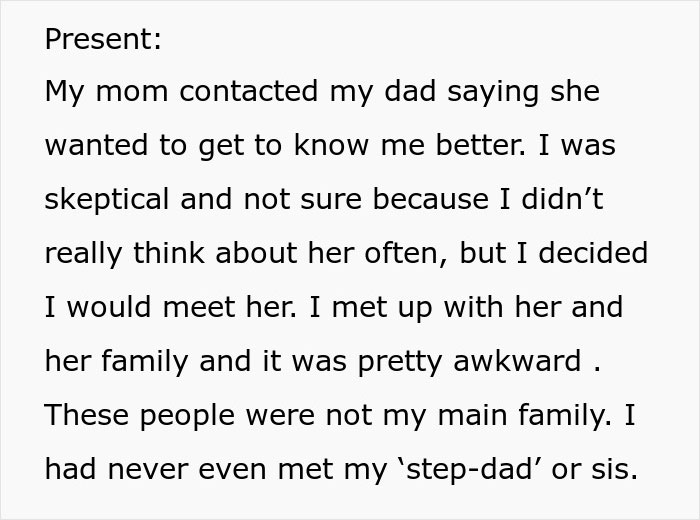

Image credits: Colton Sturgeon / Unsplash (not the actual photo)
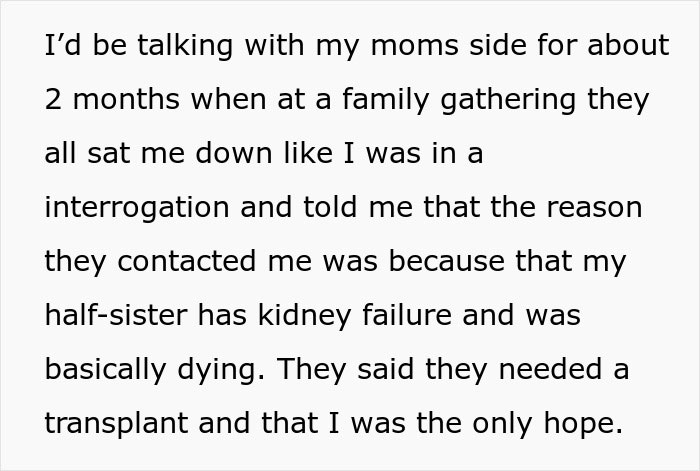
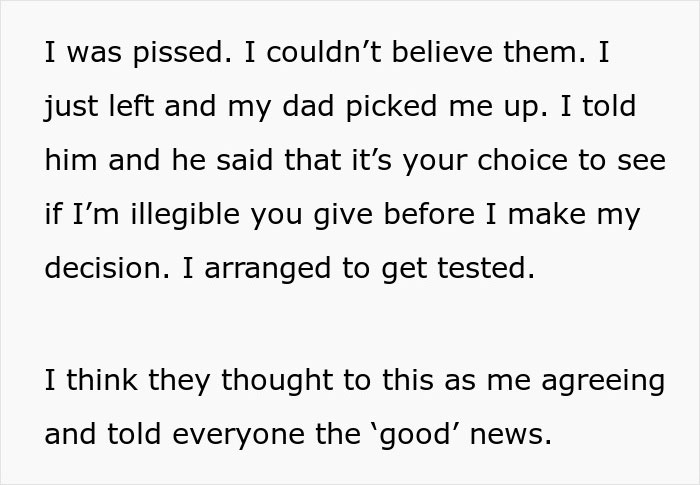
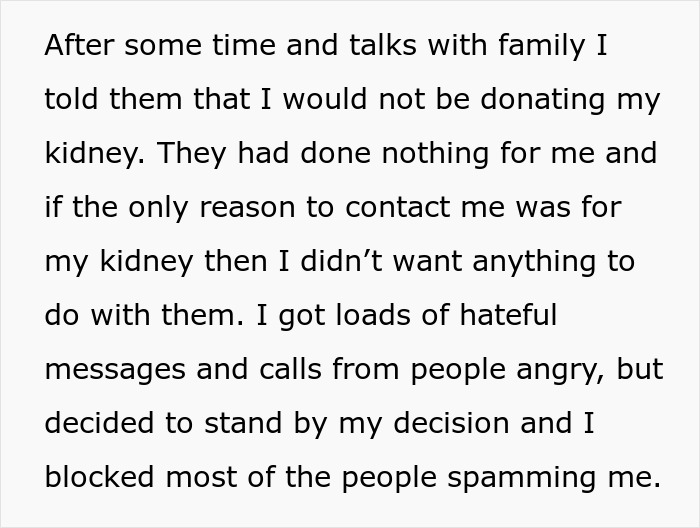
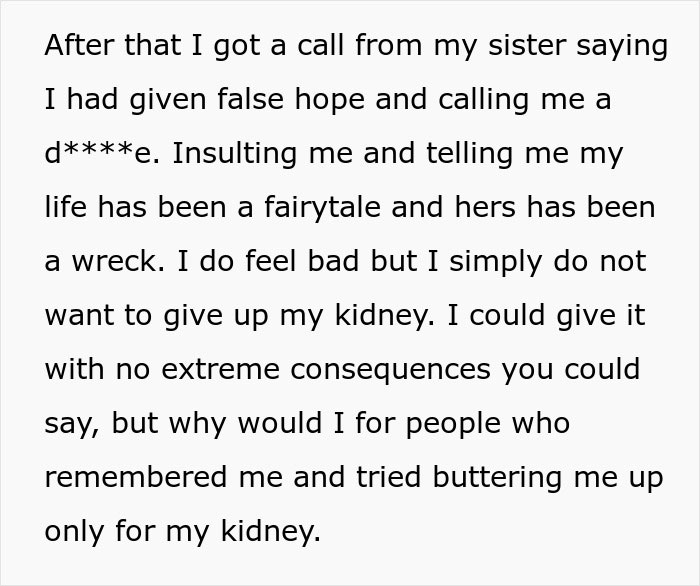

Image credits: gaspar zaldo / Unsplash (not the actual photo)



Image credits: throwaway_kidney4
What it takes to become a kidney donor and what comes after
For many people, a kidney transplant isn’t just a medical procedure, it’s a lifeline. And unfortunately, not everyone who needs one will get it.
In the U.S. alone, the National Kidney Foundation reports that out of 123,000 people on the organ transplant waiting list, more than 101,000 are hoping for a kidney. Yet each year, only about 17,000 people receive one. Every single day, 12 people die still waiting.
With odds like that, it’s no surprise that families often turn to each other in moments of desperation. But donating a kidney is a huge decision—physically, emotionally, and mentally. It’s far from easy, and it comes with real risks.
Here’s a general idea of what the process looks like (please note: this isn’t professional medical advice, only a doctor can provide that).
Step one: health screening
Before anything happens, a potential donor goes through a full medical evaluation to ensure they’re healthy enough to donate. According to the American Kidney Fund, this can include:
- Blood tests (to determine blood and tissue types)
- Urine tests
- Heart and lung exams
- Blood pressure checks
- Imaging scans like a spiral CT to look at the kidneys
- Colonoscopy (for donors over 50)
- Prostate exam (for men)
- Mammogram and Pap smear (for women)
These tests help doctors assess not only your health, but whether your kidney would be a good match for the recipient.

Image credits: Getty Images / Unsplash (not the actual photo)
The surgery and recovery
Like any surgery, kidney donation comes with risks. Common ones include pain, fatigue, and scarring. In rare cases, complications like infections or pneumonia can occur. The good news is that the risk of death during the procedure is extremely low—less than 1 in 10,000.
Most donors stay in the hospital for one to two nights after the surgery. Once home, recovery can take a few weeks. You can eat and drink normally, though it’s important to stay hydrated, especially since your remaining kidney will now be doing all the work.
Moderate alcohol consumption is generally safe after recovery, but overdrinking can lead to dehydration and strain the kidney. So staying mindful is key.
Long-term effects
Pregnancy after kidney donation is still possible, but doctors usually recommend waiting 6–12 months to give your body time to adjust.
While many donors live healthy lives, there are some possible long-term effects to be aware of. Some people develop high blood pressure years after donating, but it can often be managed with medication, just like in non-donors.
There’s also a small chance of developing diabetes or even kidney failure later in life. However, less than 1% of donors experience kidney failure after donating. And if they do, they receive priority on the transplant waiting list.
Despite these risks, research shows that donating a kidney doesn’t shorten your life expectancy, and most donors go on to live full, healthy lives.
The bottom line
Donating a kidney is a deeply personal choice. It’s not something anyone should be pressured into, and no one is ever obligated to say yes.
It’s your body, your health, and your decision.
Most commenters firmly agreed that the teen was under no obligation to undergo such a risky procedure

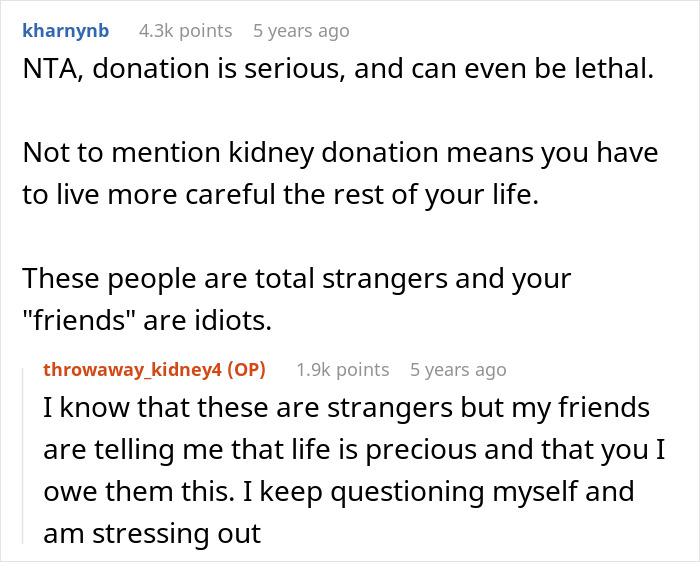

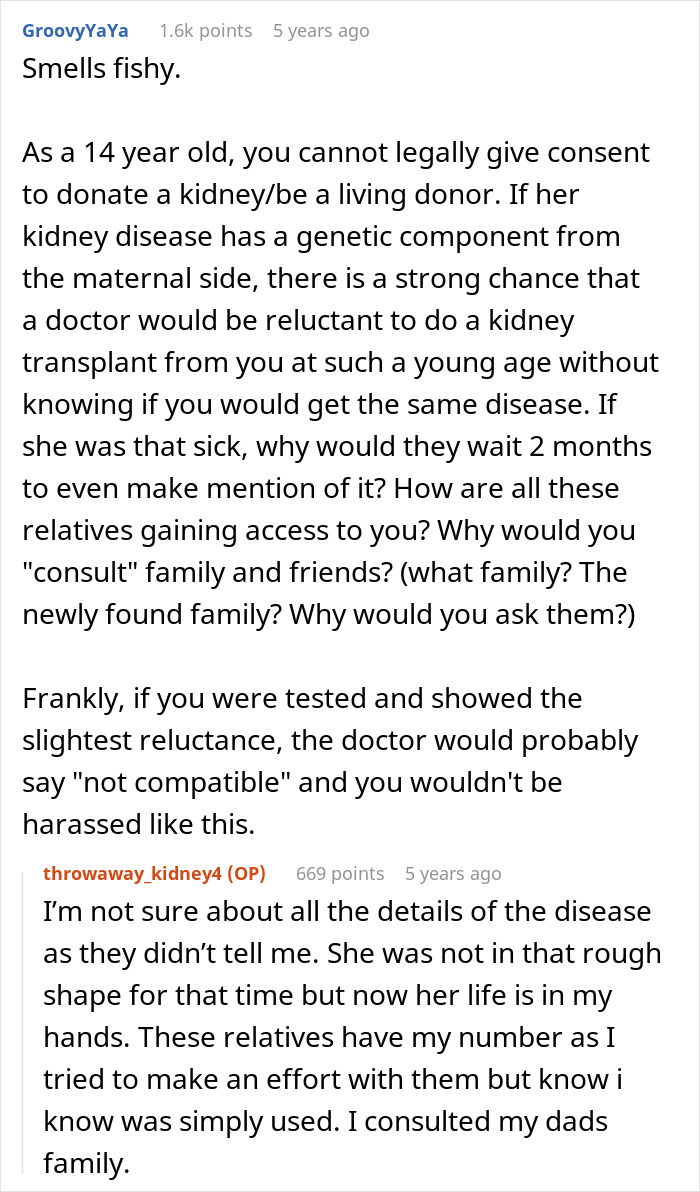
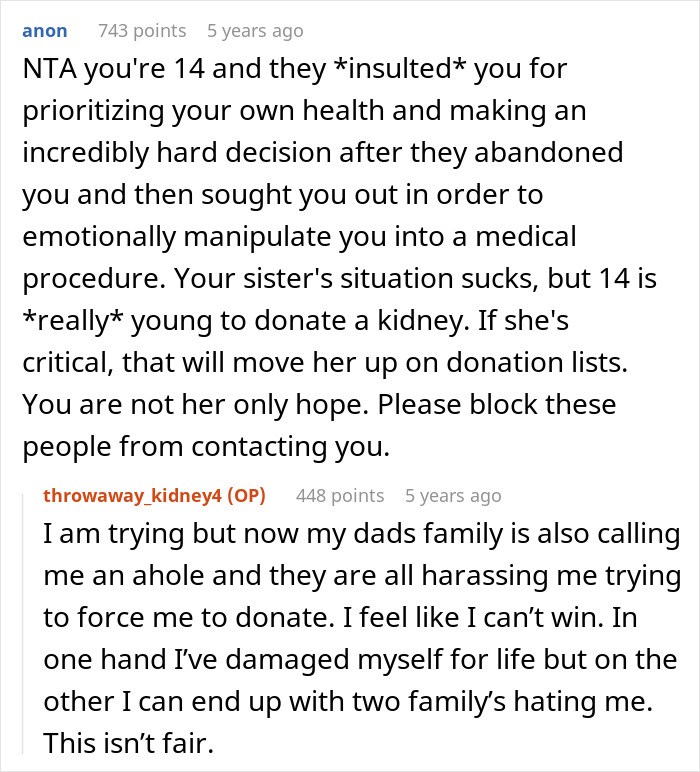

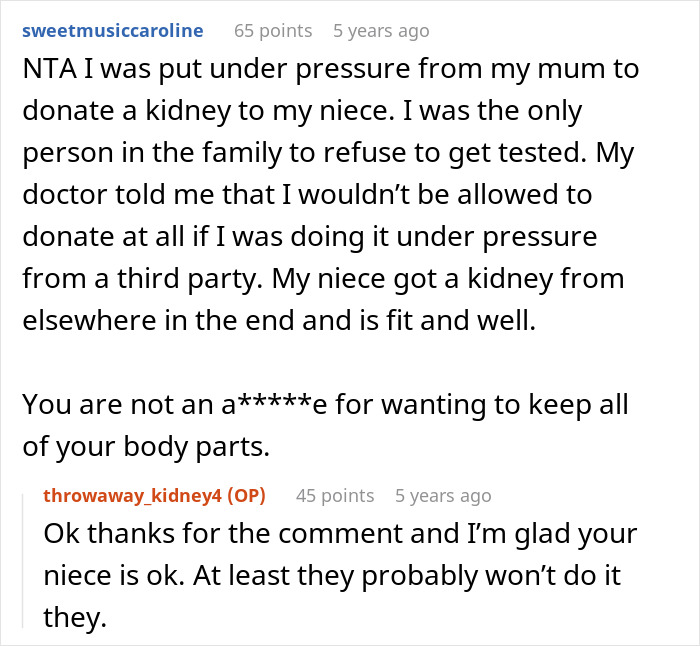
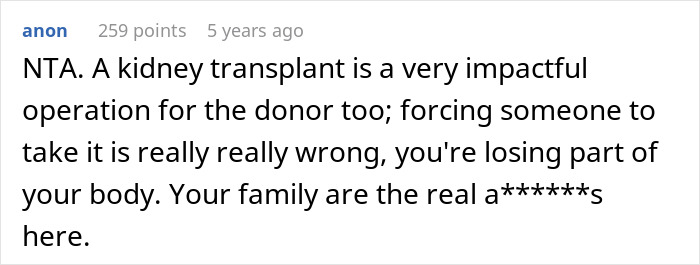
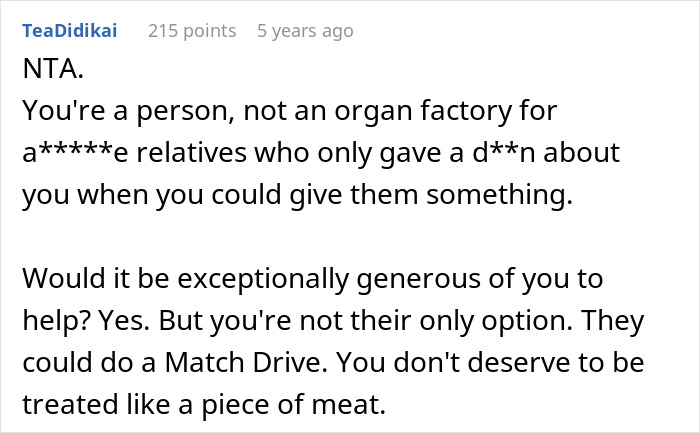

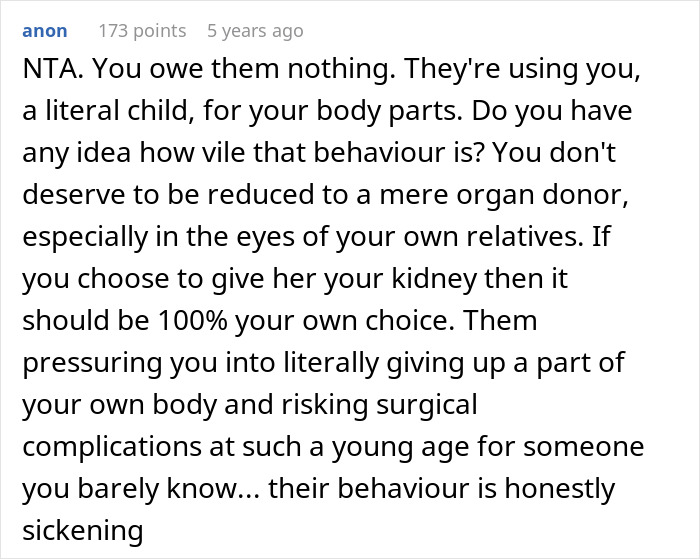

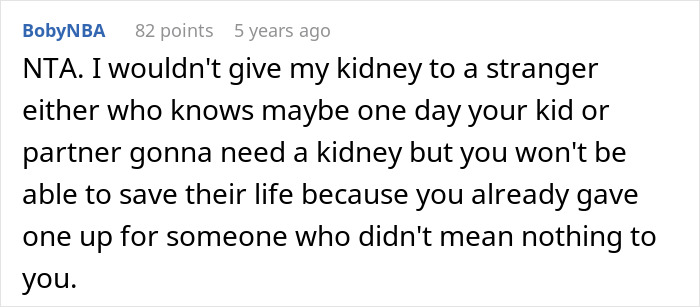





One person, however, argued that he was selfish for refusing to help save a life

from Bored Panda https://ift.tt/Cmr1Ie7
via IFTTT source site : boredpanda